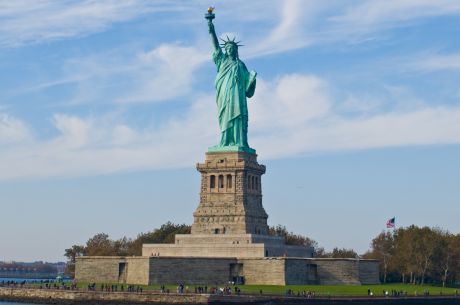Law Passes in Québec to Block Access to Online Gaming Sites; Will It Be Legal?

Espacejeux, a provincial monopoly launched in December 2010 by the Québec government monopoly Loto-Québec, is currently the only licensed operator permitted to provide online gaming services, according to local law.
This has not stopped many gaming operators from offering services to players in the second-most populous province of Canada, with many believing the monopoly violates national law.
A year ago, Québec’s Finance Minister Carlos Leitäo released the province's 2015-2016 budget which included potential changes to the Consumer Protection Act and gambling laws. Part of the changes would demand Internet service providers (ISPs) to block access to all major gambling sites besides the province's own Espacejeux.
The plans were deemed to be purely financially driven with the government in tandem with new efforts to attract more players to Espacejeux through advertising and partnerships, believing it could generate $13.5 in additional revenues in the first year, and $27 million in subsequent years.
On May 17, 2016 the plans became local law when the Quebec's government approved Bill 74 demanding that ISPs block access to all gaming sites outside of Espacejeux based off a list submitted by Loto-Québec of offending online gaming sites. However, , the bill was amended to delay implementation for six months.
If the law is not further delayed or challenged, ISPs can be fined up to $100,000 per day if they do not complying with the demands of Loto-Québec within 30 days of being notified.
It is also rumored that Loto-Québec could decide to license a few online gaming providers. If this happens, it is suspected that Amaya Gaming, the owners of PokerStars and Full Tilt, would be high on the list due to a long-term business-to-business relationship between the two companies.
Is the Law Legal?
Many believe that the new law may not be legal and further claim that it purely a money-grab. Despite the fact that the issue first arose when a budget was presented, the government claims the reason for the bill is health concerns and consumer protection.
However, a different case just ruled by the Canadian Supreme Court between the Québec municipality Châteauguay and Canadian telecom provider Rogers Communications could present a precedence of the law is challenged.
The heart of the matter was the municipality challenging the plans of Rogers Communications to build a cell-tower on its leased property. Rogers previously received approval to build the tower from the federal department known as Innovation, Science, and Economic Development of ISED.
The Globe and Mail reported that Châteauguay claimed that the site would be "visually disagreeable" while also citing concerns of the health and safety of local residents. Additionally, the local government established the property as a land reserve to prevent Rogers from building on the site without a court order.
The Supreme Court unanimously ruled in favor of Rogers declared that the purpose of the Châteauguay's actions were "not the protection of the health and well-being of residents or the development of the territory but, rather, the choice of the location of radio-communication infrastructure."
Some believe that this ruling could be applied to a potential court challenge of the new ISP law with Canadian Wireless Telecommunications Association regulatory affairs director Kurt Eby stating that they would look into "whether it has any impact on how the industry might approach."
The Globe and Mail reported that Ottawa lawyer David Elder believes this case could help a legal challenge of the proposed ISP restrictions stating the Supreme Court ruling proves that federal jurisdiction is what counts "when you’re talking about what is essential to a communications network" before adding "I think it’s a bit of an open question whether the unrestricted ability of ISPs to connect their users to whatever destinations on the Internet they choose to follow, whether that broad accessibility is essential to a communications network – I think there’s a good argument that it is."
Elder also believes that a case could be made under the federal Charter of Rights and Freedoms on the basis of hindering freedom of expression.
However, not everyone agrees that this ruling could help a legal challenge. University of Ottawa law professor Michael Geist, who is known to be against ISP blocking, shared with The Globe and Mail yesterday that, "Today’s decision suggests that either framing won’t be enough to stop the law from being struck down once it is challenged in the courts."
*Lead image courtesy of .
Get all the latest PokerNews updates on your social media outlets. on Twitter and find us on both and !









